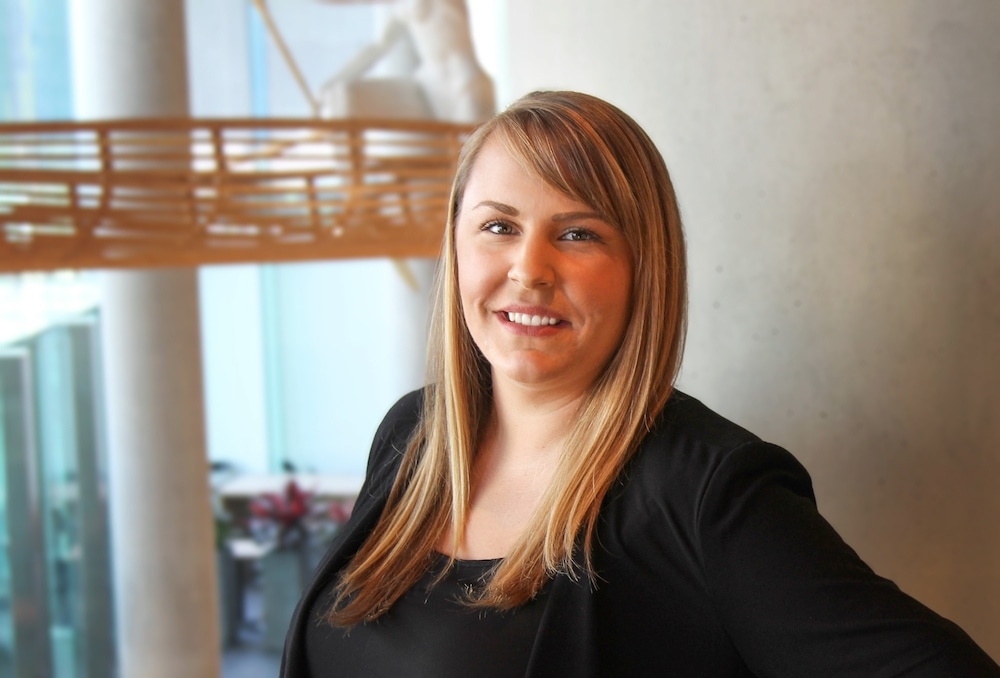On the Event Floor

Most businesspeople have attended some kind of off-site event for work, like a retirement party, team-building events and executive retreats or conferences. There’s usually a schedule of speakers, speeches or PowerPoint presentations, opportunities to meet and chat, as well as the all-important offering of food and beverages. But have you ever wondered what happens behind scenes of these events? Wondered what goes into making things run smoothly? Or even been tasked with organizing one?
Someone who has spent a lot of time behind the scenes of social and corporate events is Kimberley Falconer, Civic Hotel’s Sales & Catering Manager. Over the past decade, she’s helped organize and run everything from weddings and galas to conferences for a thousand people. She’s certainly well positioned to offer some interesting insights into the unfolding of events and offer some advice on how to avoid common problems.
Falconer begins by suggesting that organizers keep to the schedule as it’s been planned. “A lot of people work so hard to create these agendas and then they let it go by the wayside when presentations run long or speakers have not rehearsed enough to stay within their allotted time.” She stresses the importance of being firm with speakers or guests and making sure they stay within their allotted time to prevent other guests from becoming bored or, even worse, hungry. It also keeps the following events, such as meals that need to be served hot, unfolding on schedule.
The business spaces at the Civic offer state-of-the-art technology like built-in projectors and drop down screens and an in-house tech expert is available to solve any problems during initial set up of the event. Yet, looking back over her years of experience, she says audio-visual issues are common. She recommends that clients do a trial test using their own equipment prior to event day. Or, to one particularly anxious client, “I suggested that she hire a tech to come in and stay on-site all day. That made her really comfortable because she knew if any technical problems came up during the presentations there was someone to take care of it right away. “
Knowing your audience and their particular needs are important when it comes to meeting their expectations, says Falconer. This means, for example, scheduling enough bathroom breaks or enough time for guests to network between presentations or at mealtime so that they won’t run past the time scheduled for that activity. A key expectation relates to dietary restrictions. “These days, many guests have food preferences or allergies so making sure you have those foods on hand always makes you look like a superstar.”
Another of Falconer’s observations is that there is simply no substitute for experience. While training is important, learning by doing is the only way to get better at putting on good events. “It’s really important to not be afraid to try things. I have people coming to me and saying ‘this is how we do our meeting every time’ and I’ll suggest that we try it a different way instead. They might love it or we learn something for the next time. The important thing is to get out there and try it and learn more.”
Finally, she suggests it’s important for planners to remember they’re working hand in hand with a professional who is there to make sure things go smoothly and to solve problems when they don’t. Because no matter how careful and exhaustive the planning, she says, something unexpected will always happen, whether positive or negative. Those are moments when organizers need to trust and depend on coordinators like her. “You need to be working with someone who can think quickly on their feet when things are changing, and be able to jump in to place to solve any problems. That’s actually one of the things I love about my job. Keeps it exciting.”
